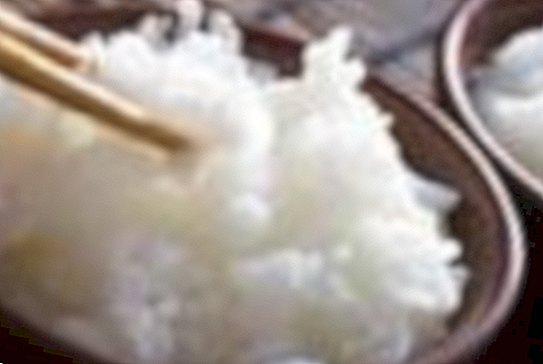More poison in organic rice

Which rice is best? Here it goes directly to the test winners.
In organic farming, chemical-synthetic pesticides are prohibited. Nevertheless, experts from Stiftung Warentest found pesticide residues in five out of six organic basmati rice samples examined - and those that are definitely not allowed in organic farming. How can this happen?
Dr. Birgit Rehlender is responsible for the rice test at Stiftung Warentest as project manager. She is also astonished by the result: In no other food test did organic products contain pesticide residues as frequently as rice does. She can not explain that. However, she also emphasizes that the quantities of pesticides found are below the legal limits - which, however, apply equally to both conventional and organic products. But that's the catch: Who buys organic food, wants to avoid that the environment and one's health are polluted by chemical sprays. Organic buyers rightly expect that these - usually more expensive - products are unloaded.
Only the organic basmati rice from Alnatura is pesticide-free
But that is not the case. Stiftung Warentest has tested wholegrain organic basmati rice from a total of six different suppliers for the August issue. The only organic rice in which no pesticides have been detected comes from "Alnatura". Significant burdens with carbendazim, a fungal pesticide, there were, however, in "Basic", "good and happy" and "Green". At "Green", high amounts of mold fungus were added. The rice should not have been sold at all. The amazing thing: the tested conventional rice varieties were almost continuously less loaded - although in conventional cultivation the use of pesticides is absolutely permitted. How is that possible?
One explanation for this is provided by Elke Röder, Managing Director of the Federal Association of Natural Foods Natural Products (BNN): "If a pesticide reaches organic rice via air and water, the residue is most likely to be found in the outer areas of the crop Shell Peeling the rice grain removes substances applied from the outside. Peeled, white rice is therefore less endangered. " The problem: Stiftung Warentest has been testing the organic quality unripe whole grain rice by organic suppliers.
This is a problem for the organic sector: Carbendazim is used according to the BNN massively in conventional agriculture. Especially through the usual irrigation in rice cultivation and organic plants can be quickly contaminated - confirm the test results. There is no protective bell for organic farming, which is obviously a great challenge especially in rice cultivation.
What remains are unsettled organic buyers who justifiably ask themselves how, in spite of time-consuming checks with pesticides, organic products can be put on the market and put into their shopping carts.
Which rice is best? The test winners can be found on the following pages.
In the current issue of Stiftung Warentest (issue 8/2010), a total of 31 varieties of Basmati rice were tested. 16 products failed - they smell musty, clump or contain no Basmati. Here you will find the test winner for loose rice and organic whole grain rice.
Test winner for white rice, loose
1st place: Tilda Pure, Basmati Rice (available in Asian shops)

Final note: 1,9 Price per kilogram: 4,70 Euro Comment: Outstanding flavor. Expensive. The rice was apparently transported in containers fumigated with methyl bromide - no risk to travel eaters, but to the environment.
2nd place: Star basmati rice by Kaiser's Tengelmann

Final note: 2,2 Price per kilogram: 3,78 euros Comment: Good basmati. But: The rice was apparently transported in methyl bromide fumigated containers - no risk for travel eaters, but for the environment.
3rd place: Tip Basmati rice from Real

Final note: 2,3 Price per kilogram: 1,39 euros Comment: Good, low-priced basmati
Bestseller Whole Grain Rice, Loose, Organic Quality
1st place: Altnatura basmati rice, whole grain, organic

Final note: 2,2 Price per kilogram: 4,90 Euro Comment: Good wholemeal basmati from organic farming. Only organic rice in which no pesticides were detected.
2nd place: Basmati rice from Davert, Demeter quality, brown rice, organic, Fairtrade

Final note: 2,3 Price per kilogram: 5,98 euros Comment: Good wholemeal basmati. Fairly traded and organically grown - yet not free of pesticides (very low levels of tricyclazole). Expensive.
3rd place: Rapunzel basmati rice, brown rice, organic

Final note: 2,7 Price per kilogram: 5,58 euros Comment: Average whole grain basmati from organic farming - yet not free of pesticides (very low loaded with tricyclazole). Expensive.
Note: You can download the complete Basmatireis test from Stiftung Warentest for 1.50 Euro.










